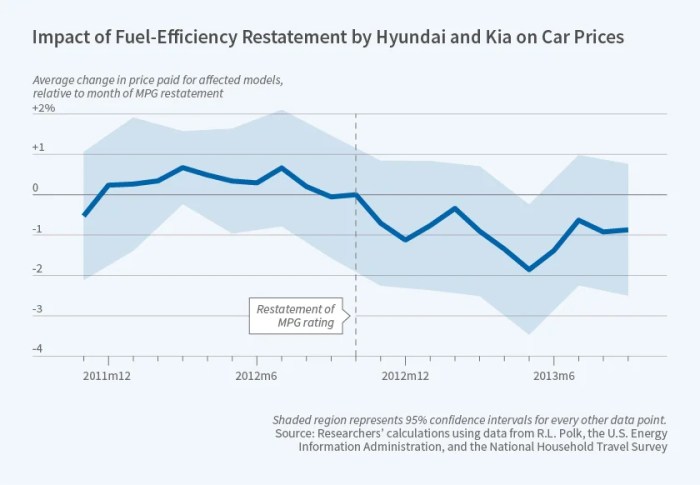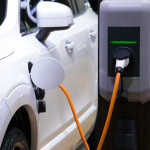Consumer Response to Rising Fuel Prices

Source: truetyres.com
Impact of fuel prices on car purchasing decisions – Fuel price volatility significantly impacts consumer behavior, influencing purchasing decisions across various sectors. This response is multifaceted, encompassing emotional reactions, adjustments in spending habits, and shifts in long-term planning. Understanding these dynamics is crucial for businesses and policymakers alike.Rising fuel prices evoke a range of emotional responses in consumers. Fear and anxiety regarding financial strain are prevalent, particularly for those with limited disposable income.
This can manifest as frustration, anger, and a sense of helplessness. Conversely, some consumers may experience a sense of urgency to make necessary adjustments, driving a more proactive approach to saving and managing expenses.
Emotional Reactions to Fuel Price Hikes
Consumers exhibit varied emotional responses to escalating fuel costs. Financial anxiety and a sense of vulnerability are prominent among those with lower incomes. These feelings can translate into a heightened awareness of the impact of fuel prices on daily life, leading to more cautious spending habits. Middle-class consumers may experience a mix of concern and frustration, adjusting their routines and seeking cost-effective solutions.
Higher-income consumers, while potentially less immediately affected, may still experience a sense of inconvenience and frustration related to the impact on their lifestyle choices.
Consumer Segments and Responses
Different consumer segments react to fuel price hikes in diverse ways. Young professionals, often reliant on personal vehicles for commuting, might prioritize cost-saving measures like carpooling or using public transport more frequently. Families, with larger transportation needs, may experience greater financial strain and may explore strategies like reducing unnecessary travel or opting for more fuel-efficient vehicles. Retirees, with potentially fixed incomes, might be especially sensitive to price fluctuations and may adjust their spending on discretionary items.
Their choices often center on minimizing costs related to transportation and essential goods.
Short-Term and Long-Term Impacts
Short-term impacts of fuel price volatility on consumer behavior often involve immediate adjustments to spending habits. Consumers may adopt strategies such as reducing non-essential travel, opting for more affordable modes of transportation, and making more conscious choices about the purchase and use of their vehicles. Long-term impacts are more profound, potentially influencing decisions regarding vehicle purchase, lifestyle choices, and even relocation.
Consumer Spending Adjustments
| Adjustment Strategy | Description | Example |
|---|---|---|
| Using Public Transport | Shifting to public transport options, like buses or trains. | A young professional commuting daily to work. |
| Carpooling | Sharing rides with colleagues or friends to reduce individual fuel costs. | A group of colleagues coordinating carpooling to the office. |
| Buying Smaller Cars | Acquiring smaller, more fuel-efficient vehicles. | A family choosing a smaller SUV instead of a larger one. |
| Reducing Non-Essential Travel | Minimizing unnecessary trips and outings. | A family postponing a weekend trip due to high fuel costs. |
| Changing Shopping Habits | Making more conscious decisions regarding purchasing and consumption of goods. | A consumer choosing to buy items from local markets or farmers’ markets. |
Consumer responses to fuel price increases are dynamic and vary significantly based on individual circumstances and priorities. These adjustments can range from short-term modifications to long-term lifestyle changes. Understanding these responses is crucial for businesses and policymakers to anticipate and adapt to fluctuating fuel costs.
Impact on Car Purchasing Decisions

Source: tosshub.com
Rising fuel prices are significantly impacting consumer choices when purchasing vehicles. Consumers are increasingly prioritizing fuel efficiency, leading to shifts in the demand for different car types. This analysis examines the factors influencing car purchasing decisions, the evolving value of fuel-efficient vehicles, and the resulting changes in vehicle demand.
Factors Influencing Car Purchasing Decisions
Consumer decisions to purchase a specific car model are influenced by a multitude of factors, with fuel efficiency emerging as a crucial consideration. Beyond fuel economy, factors like price, features, safety ratings, brand reputation, and availability also play a substantial role. The relative importance of each factor often shifts depending on individual needs and priorities.
Impact of Rising Fuel Prices on Perceived Value of Fuel-Efficient Vehicles
As fuel prices rise, the perceived value of fuel-efficient vehicles increases dramatically. Consumers recognize the long-term financial benefits of lower fuel consumption, and this translates into a greater willingness to pay a premium for these vehicles. This heightened appreciation for fuel efficiency is particularly evident in models offering hybrid or electric powertrains.
Relationship Between Fuel Prices and Demand for Different Vehicle Types
Fuel prices directly affect the demand for different vehicle types. Higher fuel prices often lead to a decreased demand for larger, less fuel-efficient vehicles like SUVs, while demand for fuel-efficient vehicles like sedans and electric vehicles increases. The transition to electric vehicles is accelerated by rising fuel prices, as consumers seek alternatives to traditional gasoline-powered vehicles.
Government Policies and Consumer Purchasing Decisions
Government policies, such as tax incentives for electric vehicles, play a crucial role in influencing consumer purchasing decisions related to fuel efficiency. These incentives make electric vehicles more attractive financially, encouraging adoption and accelerating the shift towards sustainable transportation.
Comparison of Different Car Types
| Vehicle Type | Fuel Efficiency (mpg) | Initial Cost | Maintenance Costs |
|---|---|---|---|
| Sedan | 30-40 | $20,000-$35,000 | Moderate |
| SUV | 20-30 | $25,000-$45,000 | Moderate to High |
| Electric Vehicle | >40 (varies by model) | $30,000-$60,000 | Low (typically) |
This table illustrates the general fuel efficiency and cost differences across various vehicle types. Note that specific figures can vary significantly depending on the model, features, and other factors.
Role of Fuel Efficiency in Car Selection
Consumers are increasingly prioritizing fuel efficiency when making car purchasing decisions. Rising fuel costs have significantly impacted the affordability and practicality of vehicle ownership, prompting a shift in consumer preferences towards vehicles that minimize fuel consumption. This conscious choice reflects a broader trend of environmental awareness and a desire for long-term financial savings.Fuel efficiency is no longer a secondary consideration but a key determinant in the car-buying process.
Consumers actively seek ways to mitigate the financial burden of fuel costs, leading them to meticulously evaluate different vehicle options based on their fuel economy. This meticulous approach has become the new norm in the automotive market.
Fuel Efficiency Priorities
Consumers actively seek vehicles that minimize their environmental footprint and offer substantial financial savings. The desire for fuel-efficient cars stems from a combination of factors, including rising fuel prices, environmental concerns, and a growing awareness of long-term cost savings. These factors directly influence the purchasing decisions of consumers.
Key Features and Technologies
Consumers meticulously evaluate several key features and technologies when assessing fuel efficiency. These factors include engine type (e.g., hybrid, electric, or turbocharged), transmission (e.g., automatic or manual), aerodynamic design, and tire type. The overall design of the vehicle plays a critical role in optimizing fuel efficiency.
- Engine type: Hybrid and electric vehicles are favored for their lower fuel consumption compared to traditional gasoline engines. Turbocharged engines, while offering performance benefits, can also contribute to improved fuel efficiency in certain designs. Consumers actively research and compare different engine technologies to identify the most fuel-efficient option.
- Transmission: Continuously variable transmissions (CVTs) are sometimes seen as more fuel-efficient than traditional automatic transmissions in specific applications. However, the perceived difference in fuel economy between various transmission types can vary depending on the vehicle’s overall design and driving conditions.
- Aerodynamic design: Vehicles with streamlined shapes minimize air resistance, leading to improved fuel economy. Manufacturers increasingly incorporate aerodynamic features into their designs to maximize fuel efficiency.
- Tire type: Low-rolling-resistance tires are designed to reduce friction between the tire and the road surface, thereby improving fuel efficiency. Consumers often consider tire type when evaluating fuel economy potential.
Influence of Fuel Economy Ratings
Fuel economy ratings, often expressed in miles per gallon (MPG) or liters per 100 kilometers (L/100km), significantly influence consumer purchasing decisions. Consumers rely on these standardized ratings to compare different vehicles and make informed choices. A higher rating indicates better fuel efficiency and lower operating costs.
Fuel Efficiency Ratings and Prices
| Car Model | Fuel Economy (MPG) | Estimated Price (USD) |
|---|---|---|
| Toyota Prius | 50+ | $25,000 – $30,000 |
| Honda Insight | 50+ | $24,000 – $28,000 |
| Chevrolet Bolt | 115 | $28,000 – $32,000 |
| Hyundai Kona Electric | 110 | $30,000 – $35,000 |
| Ford Mustang Mach-E | 35 | $40,000 – $45,000 |
Note: The provided data is an example and may not reflect the precise figures for all models or specific regions. Prices are estimated and can vary based on trim levels and features.
Advancements in Automotive Technology
Advancements in automotive technology have significantly impacted fuel efficiency. Electric vehicles, hybrid systems, and improved engine designs are constantly pushing the boundaries of fuel economy. These advancements directly impact consumer preferences and purchasing trends.
Financial Implications of Fuel Prices
Fuel prices exert a significant influence on the overall cost of car ownership. This impact extends beyond the immediate cost of filling up at the pump, influencing financing options, long-term expenses, and ultimately, the decision-making process for potential car buyers. Understanding these financial implications is crucial for making informed choices.
Correlation Between Fuel Prices and Car Ownership Costs
The cost of fuel directly correlates with the overall cost of car ownership. Higher fuel prices translate to increased operational expenses, impacting the affordability and desirability of certain vehicles. Factors like driving distance, frequency of trips, and personal driving habits further modify this relationship, leading to substantial variations in fuel consumption and expenses.
Long-Term Financial Implications of Fuel-Efficient vs. Less Efficient Vehicles
The long-term financial implications of purchasing a fuel-efficient vehicle often outweigh the initial purchase price difference. Fuel-efficient cars result in lower running costs, which translates to significant savings over the vehicle’s lifespan. This is particularly important when considering the potential for fuel price fluctuations over time. Conversely, less fuel-efficient vehicles, while potentially offering more desirable features or performance, may lead to substantially higher fuel costs, impacting long-term affordability.
This difference in long-term expenses is a key consideration for responsible financial planning.
Impact of Fuel Price Fluctuations on Car Loan Affordability
Fuel price fluctuations directly impact car loan affordability. Higher fuel prices can make monthly payments on a car loan less manageable, especially for individuals with variable incomes or those relying heavily on their vehicles for transportation. The unpredictable nature of fuel price volatility requires careful consideration of the potential impact on financial stability. Borrowers should factor in potential fuel cost increases when assessing their loan repayment capacity.
Informed Decisions About Financing Car Purchases
Consumers can make informed decisions about financing car purchases by considering fuel costs. Factors like anticipated fuel prices, vehicle fuel efficiency, and personal driving habits should be integrated into the loan affordability calculations. This proactive approach enables consumers to anticipate potential financial burdens and choose vehicles and financing plans that align with their budget.
Estimated Fuel Costs Over a Five-Year Period
| Car Model | Estimated Annual Fuel Cost (USD) | Estimated Total Fuel Cost (5 years) (USD) |
|---|---|---|
| Hybrid Sedan (30 MPG) | $1,500 | $7,500 |
| Compact SUV (25 MPG) | $1,800 | $9,000 |
| Sports Car (15 MPG) | $2,400 | $12,000 |
Note
These estimates are based on average fuel prices and assume a driving distance of 12,000 miles per year for each vehicle. Actual costs may vary depending on individual driving habits, fuel prices, and maintenance.
Market Trends and Future Projections: Impact Of Fuel Prices On Car Purchasing Decisions

Source: nber.org
Fuel prices significantly impact car purchasing decisions, driving shifts in market trends. Consumers are increasingly prioritizing fuel efficiency and affordability, influencing their choices towards vehicles with lower fuel consumption. This trend is likely to persist and accelerate, shaping the future of the automotive market.Current market trends reveal a noticeable preference for smaller, more fuel-efficient vehicles. Hybrid and electric vehicles are gaining popularity, driven by both environmental concerns and the desire for lower running costs.
This shift is especially pronounced in regions experiencing sustained high fuel prices.
Current Market Trends in Car Purchasing
The automotive market is witnessing a notable increase in demand for vehicles offering improved fuel efficiency. This is directly correlated with the rise in fuel prices, prompting consumers to opt for more economical choices. Compact cars and SUVs with enhanced fuel economy are becoming more sought-after. This trend is evident in sales figures across various regions and demographics.
Potential Future Projections
Fuel price volatility is anticipated to continue influencing purchasing decisions. Experts predict that the demand for electric vehicles (EVs) will surge as charging infrastructure improves and battery technology advances. The affordability of EVs, coupled with government incentives and decreasing production costs, could further propel this growth. Furthermore, the rise in fuel prices is likely to accelerate the adoption of alternative fuels and sustainable transportation options.
Impact of Fuel Price Volatility on the Automotive Market
Fuel price fluctuations have a considerable impact on the automotive market. Periods of high fuel prices often lead to a decline in sales for larger, less fuel-efficient vehicles. Conversely, lower fuel prices may temporarily boost demand for these vehicles. However, the long-term trend suggests a consistent shift towards more fuel-efficient models. This volatility necessitates adaptability and strategic planning within the automotive industry.
Government and Manufacturer Adaptations
Governments worldwide are implementing policies to promote the adoption of alternative fuels and sustainable transportation. These policies include incentives for purchasing electric vehicles, investments in charging infrastructure, and regulations to reduce emissions. Car manufacturers are responding by expanding their electric vehicle offerings, investing in research and development of alternative fuel technologies, and enhancing the fuel efficiency of their existing models.
Examples include government subsidies for EV purchases and tax incentives for fuel-efficient vehicles.
Role of Alternative Fuel Sources in Shaping Future Decisions
Alternative fuel sources, particularly electric vehicles, are playing a pivotal role in shaping future car purchasing decisions. The growing availability of charging stations and the improving range of electric vehicles are making them increasingly attractive to consumers. The long-term trend suggests that electric vehicles will become a significant segment of the automotive market, challenging the dominance of traditional internal combustion engine vehicles.
Examples include increased EV sales in Europe and North America, reflecting consumer preference for eco-friendly vehicles.
Consumer Perceptions and Attitudes
Consumers’ perceptions of fuel prices and their impact on car purchasing decisions are multifaceted and often influenced by a range of factors beyond just the price itself. These perceptions are shaped by past experiences, media portrayals, and societal values. Understanding these nuances is crucial for accurately predicting market trends and tailoring marketing strategies.Consumer attitudes toward fuel prices and their consequent impact on car choices are often complex.
While a direct correlation between fuel prices and purchasing decisions can be observed, individual responses can vary significantly based on personal circumstances, financial stability, and alternative transportation options available.
Varying Perceptions of Fuel Prices
Consumer perceptions of fuel prices are influenced by factors such as their current financial situation, their overall attitude toward environmental sustainability, and the availability of alternative transportation options. High fuel prices can be seen as a negative factor, impacting consumer budgets and encouraging a search for more fuel-efficient vehicles. Conversely, some consumers might view fuel price increases as an impetus to explore alternative energy sources or to adopt a more sustainable lifestyle.
Evolution of Attitudes Toward Fuel Efficiency
Consumer attitudes toward fuel efficiency have evolved significantly over time. Initially, fuel efficiency was often a secondary concern for consumers, overshadowed by other factors like performance and style. However, increasing fuel prices and heightened environmental awareness have dramatically shifted consumer priorities. Consumers now actively seek out vehicles with higher fuel economy ratings, often valuing fuel efficiency as a key feature alongside other desirable attributes.
Examples of this evolution include the growing popularity of hybrid and electric vehicles, which directly reflect a shift in consumer demand toward more fuel-efficient options.
Influence of Media and Marketing
Media and marketing campaigns play a substantial role in shaping consumer perceptions about fuel prices and car choices. Advertising campaigns emphasizing fuel efficiency and highlighting the long-term cost savings associated with fuel-efficient vehicles have influenced consumer decisions. Government campaigns promoting fuel-efficient vehicles and the benefits of using public transportation can also shape consumer attitudes. For example, public service announcements that focus on the environmental impact of fuel consumption can influence the buying decisions of environmentally conscious consumers.
Cultural and Regional Differences
Cultural and regional differences can significantly impact consumer reactions to fuel price increases and their effect on car buying decisions. In regions with a strong emphasis on personal mobility, fuel price increases might lead to greater resistance to adopting fuel-efficient vehicles, as consumers prioritize performance and space. In contrast, regions with more robust public transportation systems or a higher awareness of environmental issues might be more receptive to fuel-efficient vehicles.
For instance, in regions with high fuel costs, carpooling might be a more prevalent alternative transportation mode.
Societal Values and Fuel Efficiency, Impact of fuel prices on car purchasing decisions
Societal values influence the importance of fuel efficiency in car purchasing decisions. In societies prioritizing environmental sustainability, fuel efficiency is often viewed as a crucial aspect of responsible consumption. In such societies, consumers might be more inclined to prioritize fuel-efficient vehicles even if they might mean a compromise in other areas, such as performance. This reflects a growing global trend toward environmentally conscious consumption.
For example, in some countries, tax incentives or subsidies are offered for purchasing fuel-efficient vehicles, reflecting the government’s support for sustainable practices.


